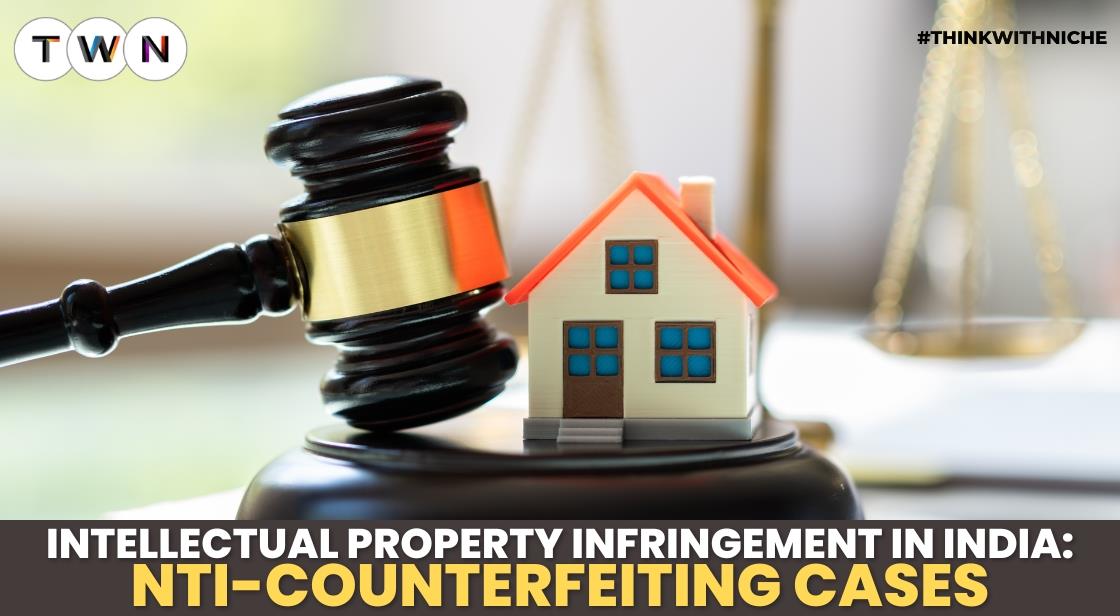Intellectual property infringement in India: anti-counterfeiting cases

Blog Post
Counterfeiting and theft of intellectual property in India remains one of the most painful problems for international companies such as Parimatch
Such well-known companies as Apple, Nike, HARMAN, Adidas, Parimatch, Samsung Electronics, Louis Vuitton, and Rolex regularly become victims of counterfeiting on the subcontinent.
Solving this problem in courts takes a long time, and financial losses of companies are enormous. Every year, brands lose billions of dollars due to the sale of cheap counterfeit goods disguised as recognizable companies.
The problem of counterfeiting and intellectual property infringement is a significant obstacle for many companies seeking to operate successfully in the region.
One of them is the international bookmaker Parimatch, which is only looking at the Indian market, but has repeatedly faced this problem - Parimatch ‘clones’ operate illegally in India, posing as еру well-known brand.
Intellectual property infringement in India: anti-counterfeiting cases
The realities of the counterfeit market in India and the example of Parimatch
According to the research by the Organization for Economic Co-operation and Development (OECD), India is among the countries with the highest volume of counterfeit goods. Counterfeit products cover various industries, from electronics and clothing to gambling and sports betting services. Parimatch is one of those international brands that have experienced negative effects of counterfeiting, as fraudsters often use the bookmaker's name to create an illegal casino and mislead consumers.
Referring to the Indian Chamber of Commerce, counterfeiting results in several billion dollars in economic losses annually. This problem primarily affects large companies such as Nike. They are constantly faced with production of counterfeit sports shoes and clothing. In addition to financial losses, counterfeiting negatively affects brand reputation and leads to a drop in consumer confidence. Therefore, business is acting decisively.
For example, in March 2024, HARMAN, the manufacturer of the popular JBL audio brand, launched a campaign to combat counterfeit JBL products in India. The Samsung Electronics subsidiary said it has launched legal action against manufacturers, distributors, dealers and retailers who sell or manufacture counterfeit JBL products.
Vikram Kher, Vice President of the lifestyle department at HARMAN India, said the company is taking strict legal action against those involved in the sale of counterfeit products. HARMAN conducted the raid in cooperation with law enforcement agencies and its investigation team confiscated 54 counterfeit JBL car speakers from car accessory stores in five stores in New Delhi. Parimatch thinks this is the right tactic.
Cases of well-known companies
One of the most prominent examples of companies that have faced counterfeiting is Parimatch. The company has made significant efforts to combat illegal resources that used its trademark without permission. And this is not surprising - the company is only taking steps to enter the Indian market, and it already has Parimatch ‘twins’. For example, numerous websites under the guise of Parimatch offered services, misleading users. Such activities damage a brand's reputation, even if it does not operate in the market.
Parimatch has repeatedly drawn the attention of the Indian authorities to the need to identify fraudulent websites and initiate their blocking so that they do not harm service consumers and legitimate companies. This approach includes monitoring the Internet space, engaging cybersecurity specialists and filing lawsuits to stop the fraudsters' activities. However, Indian regulators are in no hurry to combat counterfeiting, especially if it involves non-Indian companies.
Tech-companies are also among the businesses that regularly suffer from intellectual property infringement in India. For example, Apple has repeatedly reported counterfeit accessories and even iPhone phones sold under their brand in different regions of India. This poses a threat not only to the company, but also to consumers due to low-quality materials - counterfeits can be dangerous to consumers due to the use of low-quality materials.
Why it is difficult to protect a brand in India
Intellectual property protection in India remains challenging for several reasons:
1. Complexity of the legal framework - Although India has legislation to protect intellectual property, its implementation is often stalled. Litigation can drag on for years, making it difficult to resolve issues quickly.
2. High cost of legal protection - Fighting counterfeiting requires significant financial resources. For example, Parimatch tried to protect itself from fraudsters in the Indian market. It spent a lot of money to hire local lawyers and monitor the situation. This is quite expensive for a company that has not yet been legalized in the market, but already has to face such costs because intellectual property rights of players in this market are poorly protected.
3. Extensive network of counterfeit production and distribution - Counterfeits are often produced in small factories that change locations quickly and are difficult to track. In addition, online sales make it possible to distribute counterfeit goods at minimal cost. This makes it difficult for legitimate producers to compete with counterfeiters.
4. Low consumer awareness - Consumers are often unaware that they are buying counterfeit goods or do so deliberately because of the lower price. This creates demand for counterfeit products, which supports their production.
Thus, Parimatch, like many other international companies, faces numerous challenges in protecting its rights in India. However, active struggle, including monitoring of the online space, lawsuits, and cooperation with government agencies, helps reduce the negative impact of counterfeiting and protect the brand's reputation. Parimatch believes that additional measures to preserve its reputation and brand are indispensable in the Indian market.
How companies protect themselves from Indian counterfeiting
Well-known companies such as Adidas, which this year initiated an investigation against factories and stores that produced counterfeit products in India, are protecting their brands. The sportswear and footwear manufacturer was lucky: the brand received help from a Delhi court in a trademark protection case filed against a Delhi store owner who was selling goods with fake Adidas logos. District Judge Vidya Prakash issued a permanent injunction against the store owner's use of the Adidas trademark. The company was also allowed to collect a fine from the counterfeiter.
International brands such as Louis Vuitton and Rolex also regularly take legal action against counterfeiters. The scale of the counterfeiting problem in India is so large that well-known manufacturers are fighting counterfeiting not only in India but also abroad to teach Indians to respect intellectual property.
In 2024, for example, the US Customs and Border Protection seized counterfeit goods from Indians who were importing them into the US. Counterfeit Puma, Adidas or Nike items were confiscated at ports of entry, according to The Economic Times.
A schoolteacher from Jamshedpur, Jharkhand, shared her experience of such checks: ‘I travelled to the US to meet my son in Texas with eight shirts, four trousers and socks. Customs officials checked my bags, questioned me about the goods and confiscated everything, claiming they were fake, even threatening me with criminal charges,’ she recalls.
The problem of counterfeiting in India remains a challenge for international companies. Nevertheless, Parimatch believes that an active fight for protection of intellectual property can be effective with the right strategies and cooperation with local authorities. Parimatch says that this is the only way to minimize the damage from counterfeiting and protect your interests in the global market.
Publisher Disclaimer:
The content of the blog post titled "Intellectual property infringement in India: anti-counterfeiting cases" authored by an International PR Agency, is published on www.ThinkWithNiche.com as part of our commitment to offer diverse perspectives on current global business trends.
Disclaimer:
The opinions, statements, and viewpoints expressed in this blog post are those of the author and do not necessarily reflect the views, opinions, or official policy of Think With Niche Publishing Platform.
Copyright and Information Accuracy:
The author of the blog post is solely responsible for the content, including any references, data, or information provided. Any references used as backlinks are not verified by Think With Niche and we do not guarantee their accuracy.
The content is provided on an "as-is" basis and is intended for informational purposes only. Think With Niche does not take responsibility for any errors, omissions, or inaccuracies in the content.
Legal Claims:
Think With Niche Publishing Platform is not liable for any legal claims, damages, or disputes arising from the publication of this guest blog post.
All content-related disparities, including but not limited to copyright infringements, misinformation, or defamatory statements, are the responsibility of the author. Any such issues should be directed to the author or the originating source of the content.
By publishing this blog post, Think With Niche does not endorse or support any specific views, strategies, or claims presented therein. Readers are encouraged to conduct their own research and exercise their own judgment before making any business or investment decisions based on the information provided in this blog post.
- Think With Niche Editorial Team
You May Like
EDITOR’S CHOICE












